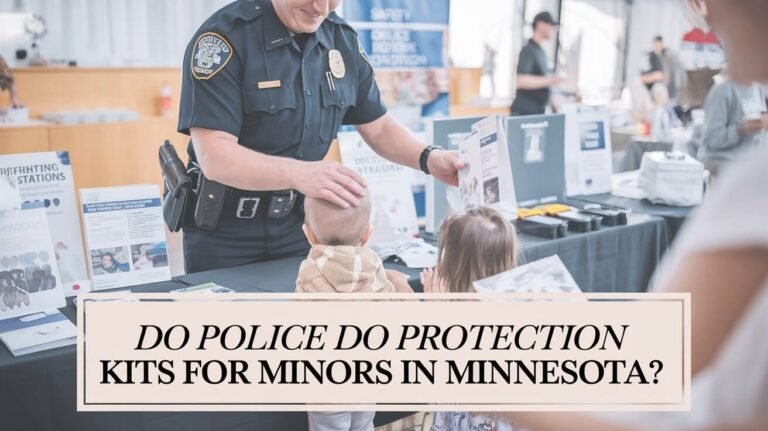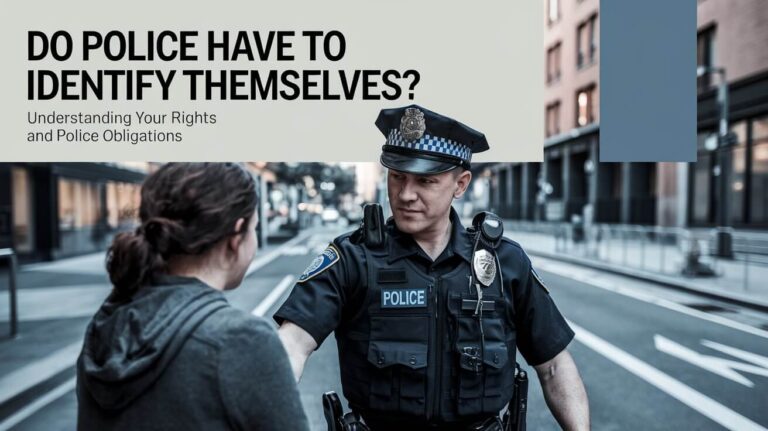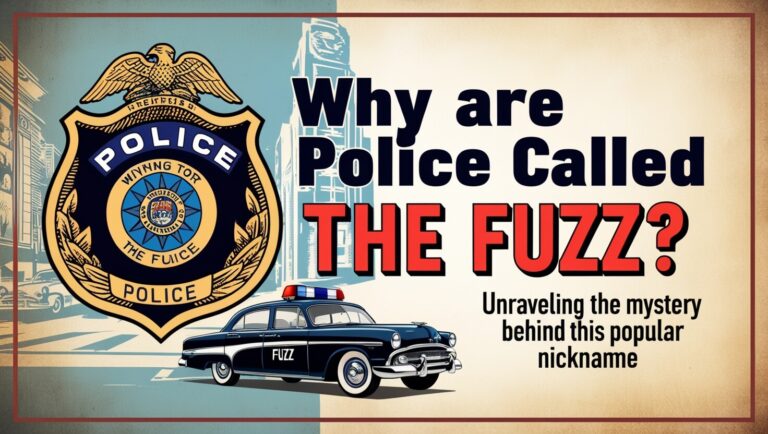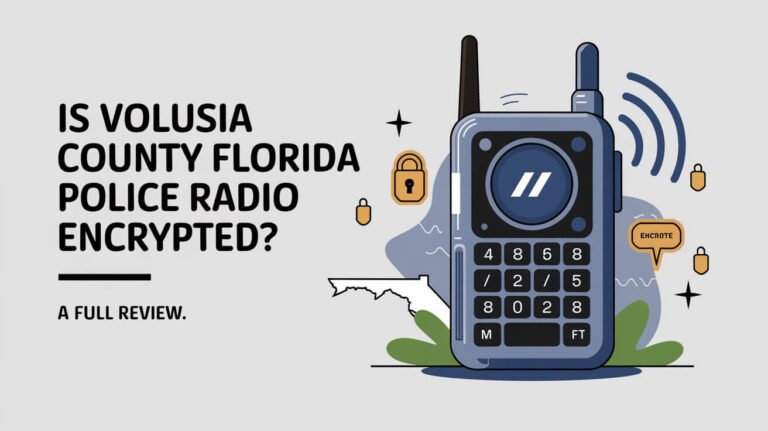Can Police Enter Private Property Without Permission?
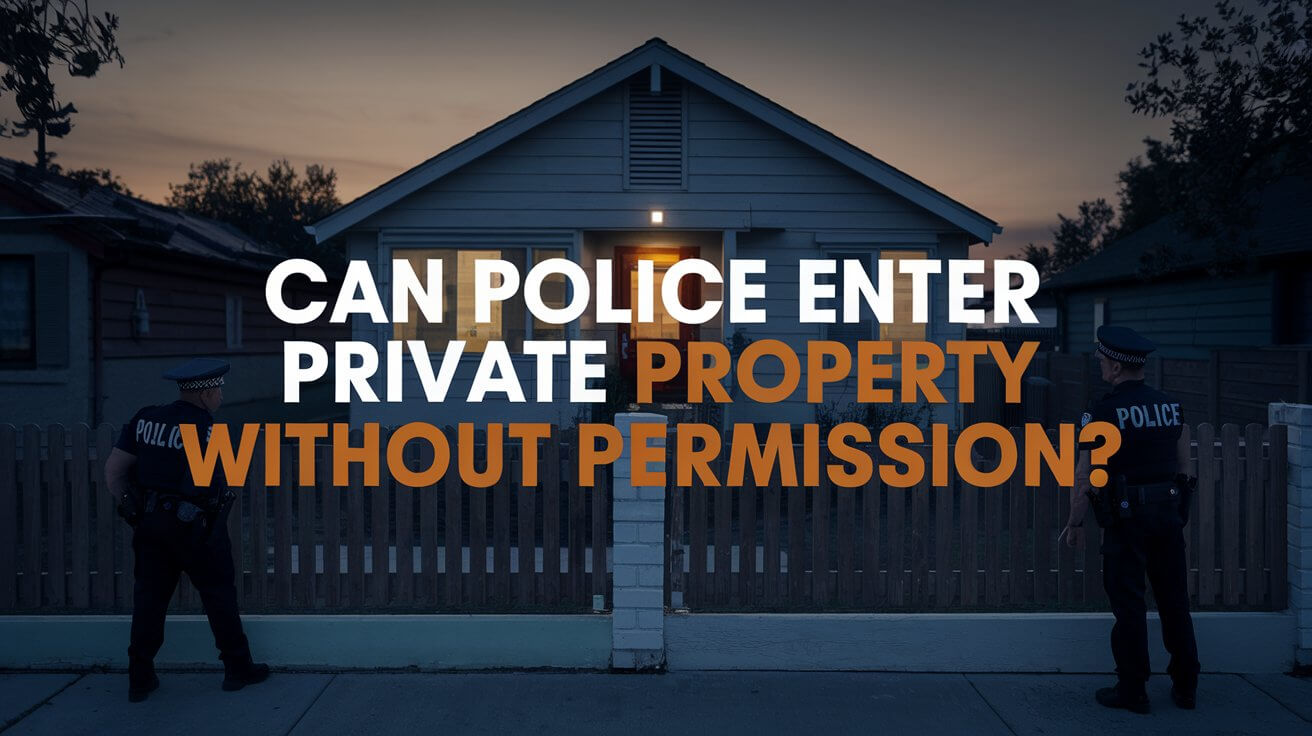
Police can’t just walk into your home whenever they want. There are rules about when they can come in without asking. This post explains when cops can legally enter private property. It also covers what you can do to protect your rights. We’ll go over some common situations and answer questions people often have about police entry. Understanding these rules helps you know your rights and what to expect if police show up at your door.
Police Powers of Entry
General Rule: Warrant Required
The Fourth Amendment to the U.S. Constitution protects citizens against unreasonable searches and seizures. This means that, as a general rule, police need a warrant to enter and search private property. A warrant is a legal document issued by a judge that allows police to conduct a specific search or make an arrest.
Exceptions to the Warrant Requirement
While a warrant is typically needed, there are several exceptions that allow police to enter private property without one. These exceptions have been established through various court decisions and laws to balance public safety with individual privacy rights.
When Can Police Enter Your Property Without Permission?
Let’s look at the main situations where police may legally enter private property without permission or a warrant:
Exigent Circumstances
Exigent circumstances are emergency situations that require immediate action. Police can enter without permission if they believe:
- Someone inside is in immediate danger
- Evidence is being destroyed
- A suspect might escape
For example, if officers hear screams coming from inside a house, they can enter to check on the occupants’ safety.
Hot Pursuit
If police are chasing a suspect who enters private property, they can follow the suspect inside without stopping to get a warrant. This “hot pursuit” doctrine allows officers to continue their chase to prevent the suspect from escaping or destroying evidence.
Consent
If someone with authority over the property gives police permission to enter, they can do so without a warrant. This could be the homeowner, a tenant, or in some cases, a guest. It’s important to note that consent can be limited in scope and can be revoked at any time.
Plain View Doctrine
If an officer is lawfully in a place where they can see evidence of a crime in plain view, they may be able to seize that evidence without a warrant. For instance, if an officer is at your door and sees drugs on a table through an open window, they might have grounds to enter and seize the drugs.
Protective Sweeps
After making an arrest, police may conduct a quick search of the immediate area to ensure their safety. This “protective sweep” is limited in scope and duration.
Specific Situations Allowing Warrantless Entry
Domestic Violence Calls
Many states have laws that allow or require police to enter a home without a warrant when responding to domestic violence calls. This is due to the immediate danger often present in these situations.
Welfare Checks
If there’s reason to believe someone inside a property is in danger or needs immediate help, police can enter to check on their welfare. This might happen if a concerned neighbor calls about an elderly person who hasn’t been seen for days.
Preventing Destruction of Evidence
If police have probable cause to believe evidence is being destroyed, they may enter without a warrant to prevent this. However, they must have a legitimate reason for thinking destruction is imminent.
Arresting a Suspect
Police can enter a home without a warrant to arrest someone if they have probable cause and believe the suspect is inside. However, they generally need an arrest warrant to enter a third party’s home to arrest a suspect.
Legal Basis for Police Entry Powers
Fourth Amendment Protections
The Fourth Amendment is the primary source of protection against unreasonable searches and seizures. It requires that searches be reasonable and, in most cases, conducted with a warrant.
State Laws and Variations
While federal law provides a baseline, state laws can offer additional protections or specific rules about police entry. Some states have stricter requirements for warrantless entries, while others give police more leeway in certain situations.
Key Court Decisions
Several Supreme Court decisions have shaped the rules around police entry:
- Payton v. New York (1980): Established that police need an arrest warrant to enter a suspect’s home to make an arrest.
- Kentucky v. King (2011): Ruled that police can enter without a warrant if they hear sounds consistent with destroying evidence after knocking.
- Florida v. Jardines (2013): Decided that using a drug-sniffing dog on a home’s porch without a warrant is a search under the Fourth Amendment.
What to Do if Police Want to Enter Your Property
Know Your Rights
Understanding your rights is crucial when dealing with law enforcement. You have the right to:
- Ask to see a warrant
- Refuse entry if there’s no warrant (unless an exception applies)
- Remain silent
- Ask for a lawyer if you’re arrested
How to Respond to Police at Your Door
If police come to your door:
- Stay calm and be polite
- Ask why they’re there
- Ask to see identification
- If they don’t have a warrant, you can refuse entry
- If they insist on entering, state clearly that you don’t consent to a search
When to Allow or Refuse Entry
It’s generally best to refuse entry unless police have a warrant or an emergency exists. However, if you’re sure you have nothing to hide and want to cooperate, you can choose to let them in. Remember, anything they find can be used as evidence.
Consequences of Unlawful Police Entry
Evidence Suppression
If police enter illegally and find evidence of a crime, that evidence might be suppressed in court. This means it can’t be used against you in a trial.
Civil Rights Violations
Unlawful entry by police can be a violation of your civil rights. You may be able to file a lawsuit against the police department or individual officers.
Complaints and Legal Action
If you believe police entered your property unlawfully, you can:
- File a complaint with the police department
- Contact a civil rights attorney
- Report the incident to your local ACLU chapter
Exceptions for Other Law Enforcement Agencies
Federal Agents and Special Circumstances
Federal agents, like FBI or DEA officers, generally follow the same rules as local police. However, there are some special circumstances where they might have broader entry powers, such as in terrorism investigations.
Probation and Parole Officers
Probation and parole officers often have more authority to enter the homes of people under their supervision without a warrant. This is usually a condition of probation or parole.
Police Entry in Different Types of Properties
Residential Homes
Homes have the strongest Fourth Amendment protections. Police need a warrant or an exception to the warrant requirement to enter.
Apartments and Shared Spaces
In apartments, police may be able to enter common areas without a warrant. However, they still need a warrant or an exception to enter individual units.
Business Premises
Businesses generally have less privacy protection than homes. Some highly regulated businesses may be subject to warrantless inspections.
Vehicles on Private Property
Vehicles on private property are still subject to the automobile exception, which allows searches with probable cause but without a warrant.
Technology and Police Entry
Doorbell Cameras and Home Security Systems
These devices can provide evidence of police conduct during entry attempts. They may also deter unlawful entries.
Cell Phone Location Data
In Carpenter v. United States (2018), the Supreme Court ruled that police generally need a warrant to access cell phone location data.
International Perspectives on Police Entry Powers
Comparison with Other Countries
Police entry powers vary widely around the world. Some countries, like the UK, have similar warrant requirements, while others give police broader authority.
Human Rights Considerations
International human rights law recognizes the right to privacy in one’s home. Many countries balance this right with law enforcement needs.
Protecting Your Privacy While Cooperating with Law Enforcement
Balancing Rights and Public Safety
It’s possible to assert your rights while still being cooperative with legitimate law enforcement activities. Know your rights, but also understand the challenges police face in their work.
Community Policing Initiatives
Many communities are working on building better relationships between police and residents. These efforts can lead to more trust and respect on both sides.
Frequently Asked Questions
Can police enter my backyard without permission?
Generally, your backyard is considered part of your home’s curtilage and has strong Fourth Amendment protections. Police typically need a warrant or an exception to enter without permission.
Do police need a warrant to search my car in my driveway?
If your car is in your driveway, police usually need a warrant to search it. However, if they have probable cause, they might be able to search under the automobile exception.
Can landlords let police in without tenant permission?
Generally, no. Landlords can’t give police permission to enter a tenant’s private living space without the tenant’s consent, unless it’s an emergency or specified in the lease agreement.
Remember, if you’re ever in doubt about your rights or feel they’ve been violated, it’s best to consult with a qualified attorney who can provide guidance based on the specific laws in your area. Stay informed, stay respectful, and know that the law is there to protect both individual rights and public safety.


